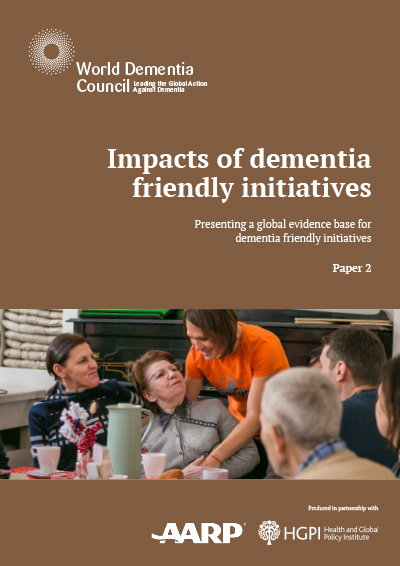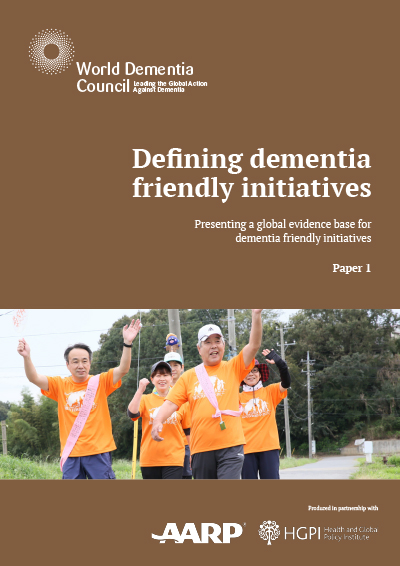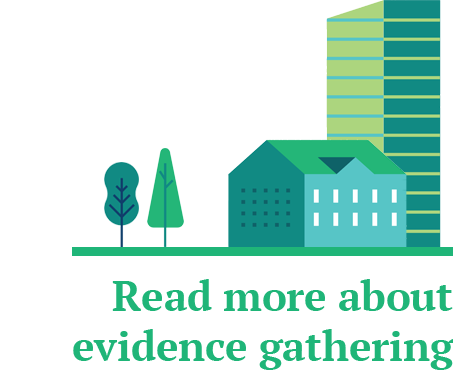

The World Dementia Council hosted a summit in London in December 2018 bringing together global experts from different disciplines in dementia to reach consensus on some of the challenges the world faces in reaching the 2025 goals (set by the G8 in 2013). One of the priorities identified at the meeting was a better understanding of the evidence base for dementia friendly initiatives.
In 2019, the Council launched a year-long consultation to gather international evidence on the design and delivery of dementia friendly initiatives. An evidence framework was designed to examine a global evidence base, attempting to consider the variety of initiatives designed to have impact, the breadth of evidence likely to be submitted from countries around the world, and the range of voices who would contribute. A literature review, field survey and a number of consultation events informed the project.
The Council postponed the publication of a report planned for Summer 2020 due to Covid-19. We are now publishing a series of papers that reflects on the evidence gathered.
Advisers
The Council would like to thank the members of the advisory committee that helped shaped the project: Jeremy Hughes, former chief executive of the Alzheimer’s Society (UK); Sarah Lenz Lock, senior vice president for policy, AARP (US); Ryoji Noritake, chief executive, Health and Global Policy Institute (Japan); and Glenn Rees, chair, Alzheimer’s Disease International.
We are also grateful for the advice of Tarun Dua, programme manager for dementia (and WDC associate member), and Katrin Seeher, technical officer for dementia, both from the World Health Organization.
The papers should not be read as representing the views of any one individual on the World Dementia Council, nor the individuals and organizations listed above that have advised the project.
What we've learned
Every day, individuals and organisations right across the globe are involved in dementia friendly initiatives. They are at the forefront of the design, provision, delivery and assessment of widely-varying initiatives to help people living with dementia lead better quality lives in the community.
The project has received evidence submissions from all six continents of the world. We have received examples of government-led initiatives, of programmes led by civil society, of initiatives by businesses both big and small, and volunteers in schools, hospitals and local communities.
The range of activities that people describe as dementia friendly is vast: improving a care home; providing a support service in the community; developing insurance products; through to signage at airports. Nor are the beneficiaries just individuals with dementia. Alongside the range of activities, there is also a bigger societal ambition. Much of the activity reviewed describes individual initiatives that aim to improve the lives of people with dementia within a geographical area. But the cumulative ambitions of these individual activities go beyond that to delivering societal change, and described in sweeping terms such as “an inclusive society”, “a dementia friendly society” or “building a dementia friendly world”.
